Democratic Republic Of Congo
Patricia* is 15 years old and has a tough look. Like thousands of girls and women in recent months, she was raped while searching for food for her family around the displaced camps in Goma, in the east of the Democratic Republic of Congo.
Sitting in a Médecins sans Frontières tent, pregnant, she hides her face in her scarf while her mother speaks. "Because of hunger, I sent her to look for potatoes in our village", then "neighbors said she had been captured, I thought she was dead..."
The village is called Mushaki and, in February, Patricia, her mother, her six brothers and sisters and many of the residents fled, leaving everything behind.
Nestled in a pass at an altitude of more than 2,000 m, about thirty kilometers west of Goma, the provincial capital of North Kivu, this town was the scene of fighting between the army on one side. Congolese and local militias and, on the other, the M23 rebels supported by the Rwandan army.
Reappearing at the end of 2021, this former mainly Tutsi rebellion took over large parts of the province, causing the flight of more than a million people.
Armed men
Mattresses and pots and pans packed on their heads - when they have had time to collect a few things - these displaced people are tossed around according to the violence in areas where " armed men", soldiers and militiamen, racketeer or attack them.
One Wednesday in late September, Patricia reappeared in the camp. She described being taken to a Hutu militia base and raped for several weeks by one of them. One morning, she pretended to fetch water and managed to escape.
In front of her and her mother, Sandra Kavira listens. This young 28-year-old Congolese woman is a social worker at MSF. She has heard “hundreds” of testimonies like Patricia ’s since taking up her post in July in the Rusayo camp, one of the largest in the city.
“Here, we receive at least ten new cases per day, even little girls aged 4 and grandmothers over 80,” she explains, visibly affected.
Armelle Zadi, her supervisor, remembers a patient who could no longer move and remained bedridden after having suffered "a third gang rape". “Her daughter had no choice but to become a prostitute to feed the family. ” “Women are prisoners of a cycle of misery,” she says.
Sexual violence
Every day, "around 70 women victims of sexual assault - or more than 2,000 per month - present themselves in the structures we have set up", explains Brian Moller, MSF emergency coordinator in Goma. “These figures only represent part of the reality, since they only concern consultations carried out in the sites where MSF operates,” he insists.
Sexual violence has been a scourge in eastern DRC for nearly 30 years.
Swaddled on her mother's knees, Queen breastfeeds peacefully._ "It happened the first time I left the camp," explains Charmante*, 18 years old and a mother for a month. While breastfeeding, she continues her story: "he was wearing a FARDC (Congolese Armed Forces) outfit, when he finished I could no longer walk, it was my friends who carried me back to the camp".
Like her 19-year-old sister and at least two of her friends, Charmante was raped while she was collecting wood in Virunga Park (north of Goma) to resell it and buy something to feed her brothers and sisters.
A week later, she went to an MSF health post where she “tested positive for pregnancy”, in her words. Her mother opposes abortion. Little Queen was born a few months later. One more mouth to feed.
Humanitarian aid
Some of the raped women met by AFP had received humanitarian aid, others had not. All of them had, at some point, to choose between the risk of being raped or going hungry with their children.
Last November, Rose, 43, walked for three days with her seven children to escape M23 rebels who were entering Kiwanja (about 70 km north of Goma). Since then, she has lived in Rusayo and says she has received no help.
His eyes blur, and his throat tightens. Sandra Kavira listens while Rose retraces the thread of her life—a life of violence, pregnancies, punches, miscarriages and vigilantes.
Already a victim of gang rape in 2017 - in front of her husband, who subsequently beat her daily - she knows the risks of leaving the camps to "look for wood".
She resigned herself to it in June: "We were three friends, there were four men in FARDC uniform. We were all raped. "
Before abandoning her with their seven children in the mud of the Rusayo camp, her husband beats her one last time to make her pay for this second rape and disappears.
In the MSF tent, Rose wipes her tears and hugs her little 4-year-old Jean. "In the camp, it's hard to talk about it. But here, we find neighbours, girls we know, and we say to ourselves: ah... you too?"
(*) The first names of the victims have been changed



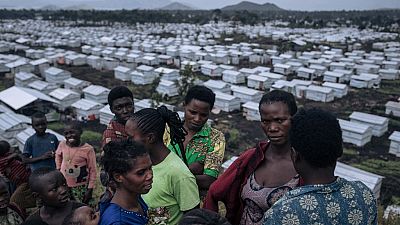

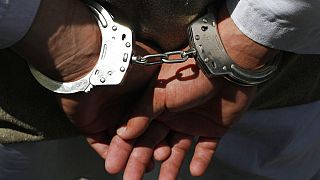
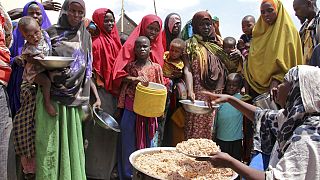
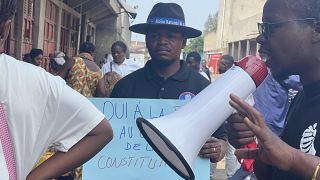
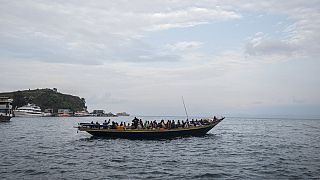

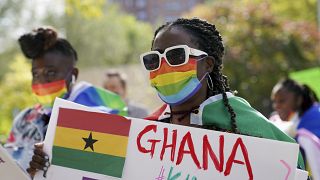
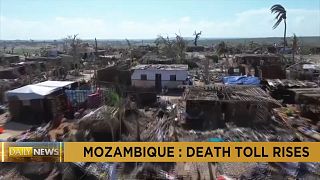

00:54
Jay-Z's lawyer says accuser's rape claim is 'provably, demonstrably false'
01:34
Workshops help Haitian women cope with trauma of ongoing gang violence
00:48
Kylian Mbappe's Stockholm visit: rape investigation dropped
01:34
Congo on alert over mystery flu-like disease as death toll rises
Go to video
Extremist rebels linked to IS kill at least 9 and kidnap 3 in eastern Congo
Go to video
Mystery disease kills 143 in southwest Congo